Connecting Landowners to Their Birds
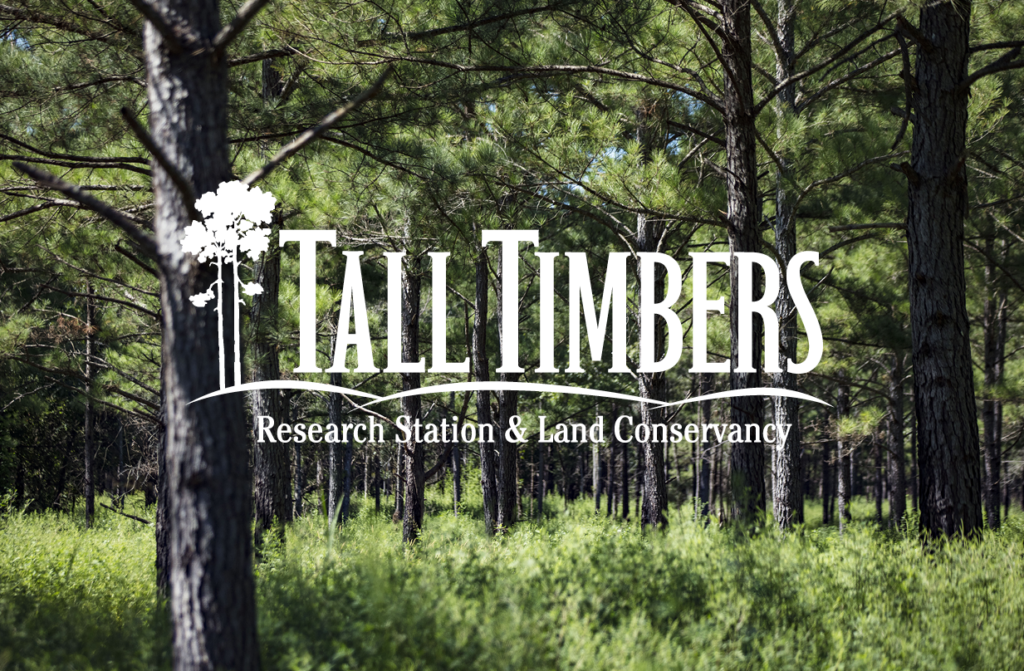
It’s time to give credit where credit is due. If it were not for conservation-minded private landowners throughout the country, we would have far less wildlife. And that wildlife includes birds.
In Florida and Georgia, private lands make up the majority of both states (79% and 90.3%, respectively). Many of these lands, such as shopping malls and golf courses, are unsuitable for many declining bird species. However, millions of acres of private lands in both states are conducive to these species and, in many cases, are the deciding factor in whether or not populations can persist in an area over the long term.
With this in mind, the Tall Timbers Land Conservancy is working to empower conservation easement landowners to document the birds that occur on their properties. Tall Timbers applied for a Cornell Lab of Ornithology grant to help them achieve this goal. They have partnered with the Alachua Conservation Trust and Conservation Florida, as well as with four Audubon chapters, to link Audubon volunteers with private landowners. The idea is to have solid birders from Audubon chapters teach landowners how to identify birds and use eBird to record what they see throughout the year. Land trusts like Tall Timbers often visit properties only once per year to conduct easement monitoring visits and, even then, often are not recording every bird species that they see. Helping landowners fill in the who, when, and where for different bird species in places where surveys rarely, if ever, occur could help to augment the efforts of ornithologists.
You may be wondering what this project looks like in practice. Well, the bottom line is that it’s been a lot of fun for all involved. Tall Timbers staff have conducted four landowner visits so far in partnership with Apalachee Audubon. At Hays Cummins’ and Donna McCollum’s property, participants got to watch hundreds of wading birds fly over their heads to a wetland roost at sunset. Helen and Tom Roth’s property offered the chance to see habitat restoration in action on a beautiful landscape, with a flock of gorgeous (and uncommon) purple finches providing icing on the cake. Serenading grasshopper sparrows at sunset rounded out a visit to Annie Schmidt’s property, that had already included steephead ravines, a waterfall, and salamanders. Guy Anglin and Jan Blue’s property visit resulted in great looks at a vesper sparrow, a northern harrier, bald eagles, and nesting red-headed woodpeckers.
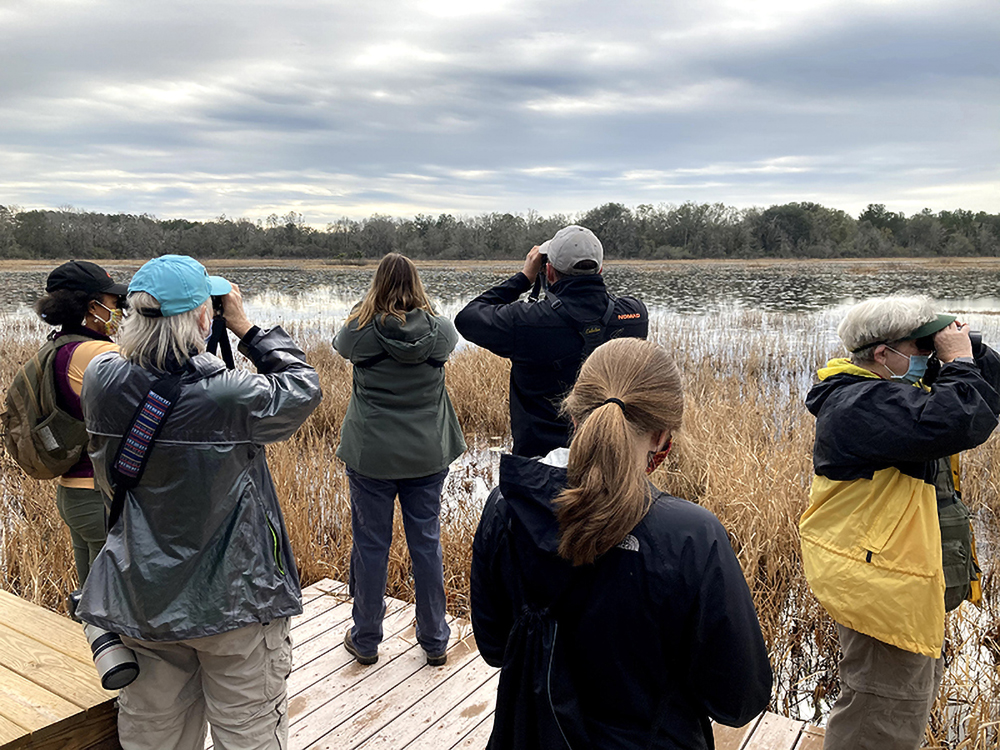
Hays Cummins, who with his wife, Donna, owns the wading bird rookery mentioned above said, “It was a great day of fellowship and experiencing the many natural wonders of this region of Florida. It was so invigorating to be with people whose passions for the environment matched ours. Strong partnerships like this give us hope for the future of the region.”
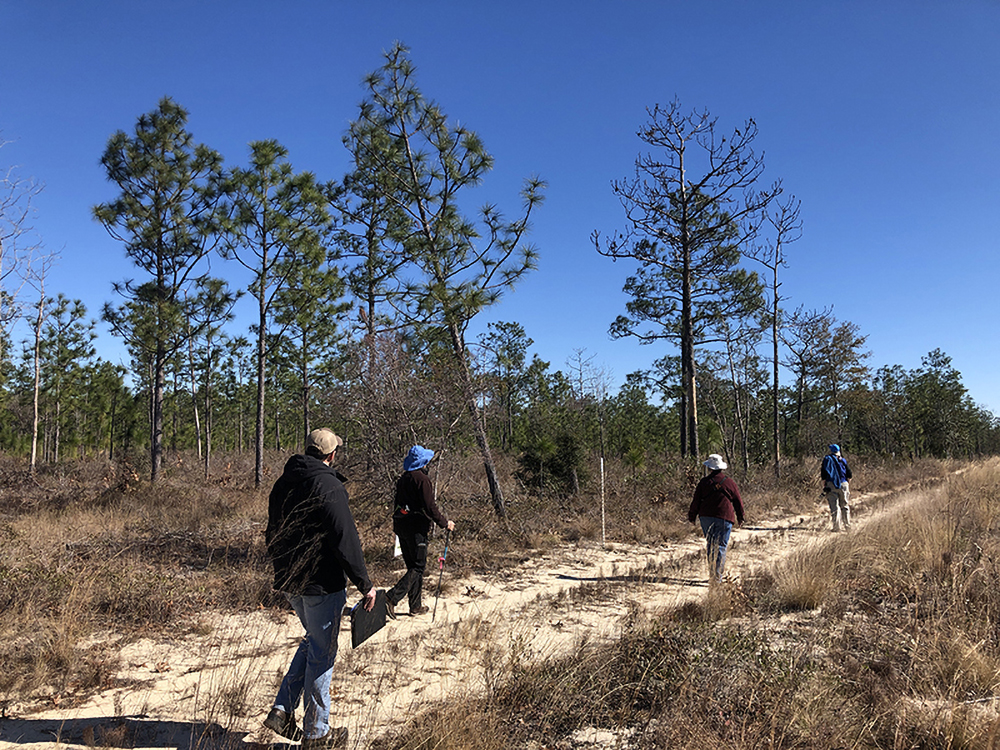
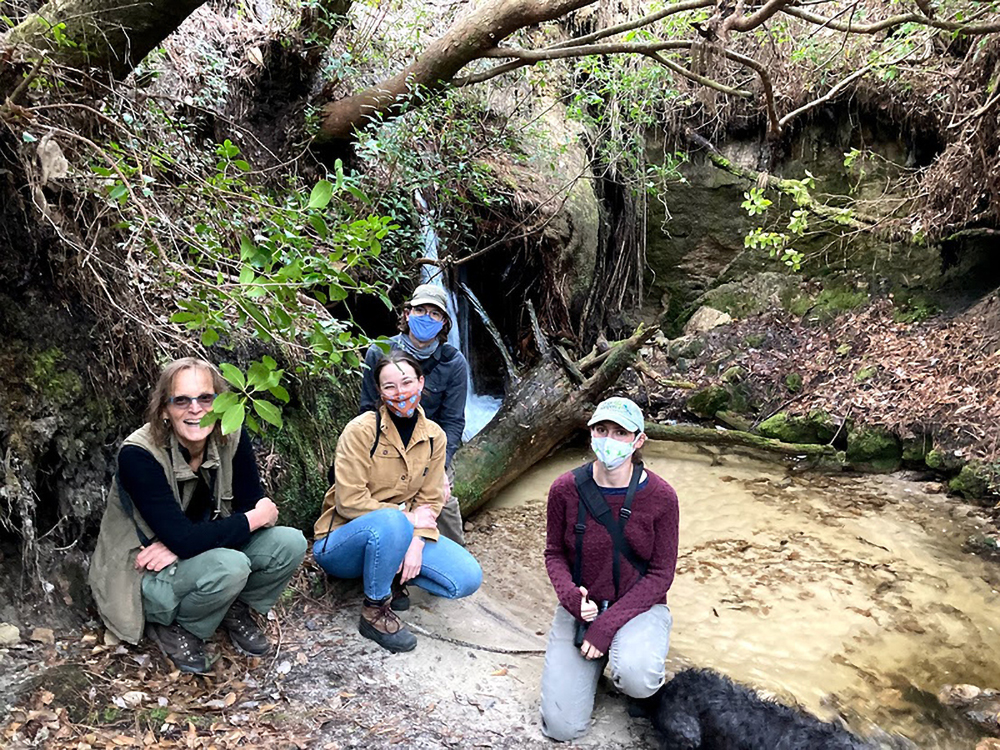
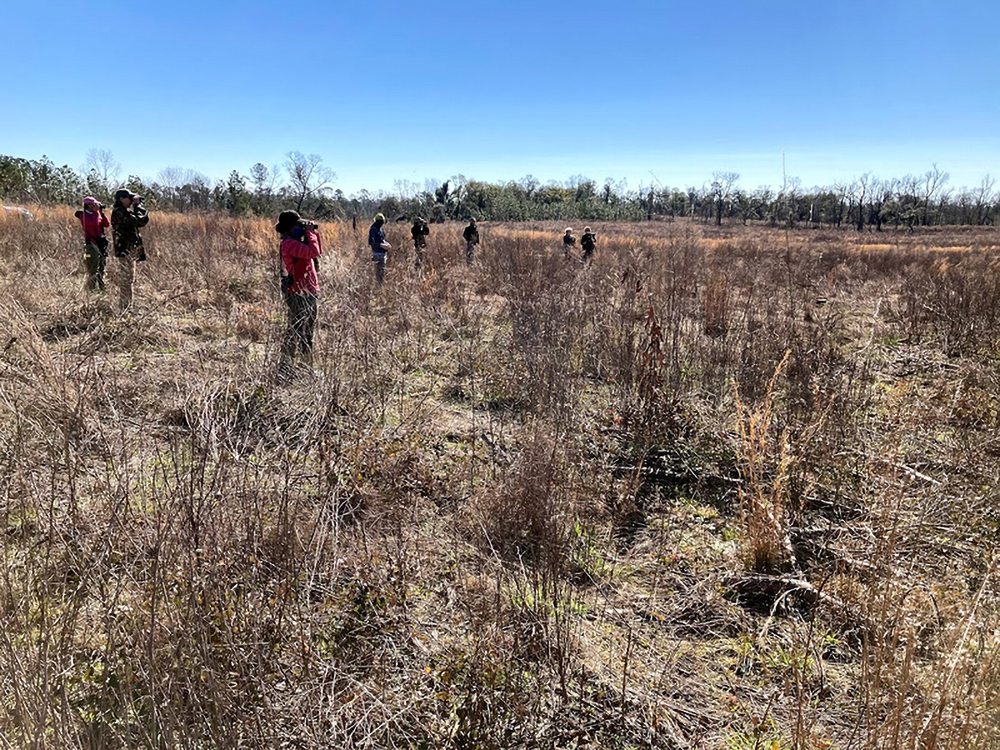
The visits offer opportunities for Audubon members to learn more about habitat management, see the benefits of conservation easements firsthand, and experience spectacular natural habitats that they would probably never experience otherwise. They offer landowners the chance to deepen knowledge of their property and the species that occur within it, and maybe even introduce them to a new hobby.
With new birds arriving soon from places further south and more landowners showing interest in getting involved, the prospects of this project look promising. If you are interested in getting involved with the project, please contact Peter Kleinhenz.
SHARE ON
You may also like
The role corn plays for gamebirds and economies ac...
Sportsmen’s conservation policy issues from publ...
Sportsmen’s conservation policy issues from publ...


























